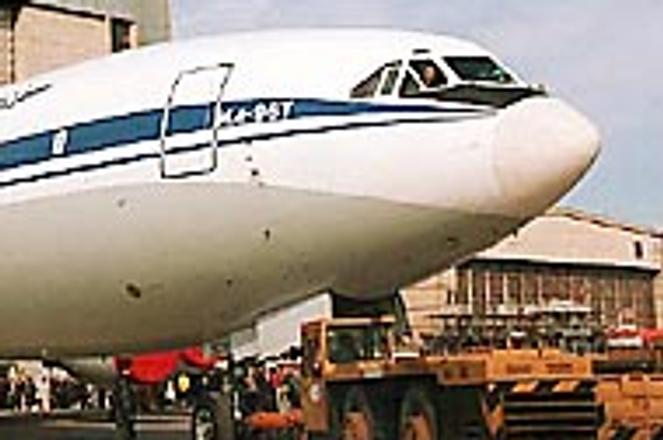The famous Russian carrier will no longer be roaring down Bratislava's runway.photo: TASR
After 30 years of serving the Slovak capital with its aircraft, Russian carrier Aeroflot last week cut its Bratislava-Moscow link because of falling passenger numbers.
The company explained that a mutual visa requirement for Russians and Slovaks as of January 1, 2001, and an industry regulator's decision to force Aeroflot's cost-efficient TU-134 aircraft out of service, had made the route a loser.
But while Aeroflot said the September 11 terrorist attacks had not been a major factor in its decision, other airlines operating in Slovakia said the US events were slowly reshaping air traffic here.
Serguei Miagkikh, the manager of Aeroflot's Bratislava office, said the airline had decided to cut its thrice-weekly flights to Moscow on October 29, the day marking the beginning of the winter season.
Under a new contract with Slovak carrier Slovenské aerolínie (SA), Aeroflot will continue selling tickets for thrice-weekly flights to Moscow on SA planes.
"This has not been an average year for us," said Miagkikh. "We had the visas, the banning of our most advantageous planes, a shortage of suitable aircraft on the Russian domestic market, the September 11 attacks with now higher insurance, and generally low tourism numbers in Slovakia.
"Passenger numbers fell 20-25% year-on-year in the first quarter after people needed visas to travel back and forth. Our capacity rate was 35%, and on this link you need 70% to break even."
Aeroflot's TU-134 aircraft, a 68-seater, was banned from European airspace by the Eurocontrol regulator in April for not meeting quality and safety norms. The ban forced the company to employ its more expensive 132-seat TU-154s on the Bratislava-Moscow link making it virtually impossible to drive a profit.
Added to heavy competition for the Moscow route from major regional airports in Vienna and Budapest, each of which have several carriers flying to the Russian capital daily, the year's events convinced Aeroflot to cut its flights for the time being.
While other airlines operating from Bratislava's M.R. Štefánik airport also announced route and frequency cuts October 29, it was unclear how many of these were related to a general industry downturn and how many to normal winter travel levels.
Czech air carrier ČSA cut its daily Prague-Bratislava flights from five to four, but said the reduction was a normal one for the winter season. Tunis Air, on the other hand, was forced by low passenger interest to cut its Bratislava link entirely.
"Tunisia is a country in a risk area, and the fall in interest was certainly also affected by the Foreign Ministry's warning not to travel to the area," said Ivana Paulínyová for the Slovak Airport Administration.
But not all airlines are hunkering down for the winter. Christian Mandl, CEO of the soon-to-be-launched Sky Europe air carrier, said the post-September 11 world had only improved his market chances.
"If you look at what's happening across Europe, you see it's the time of the low-cost airlines," said Mandl. "Cheap aircraft are now widely available, fuel costs are down... and given that there will now be fewer flights from Bratislava to Košice, we feel more of a responsibility than ever to start operating such a link soon."
Sky Europe announced plans this spring to begin flying to European capitals from Bratislava for bargain rates and promised to run a link between Slovakia's two largest cities for under Sk1,000 ($21).
Mandl said that Sky Europe would start operations before the end of the year, but that he was still waiting for approval of the airline's license and air operator's certificates and for a memorandum of understanding to be signed with the government.
A working draft of the memorandum was made public in August and caused a stir with some of the tax and market advantages Sky seemed to be requesting. Mandl said that the draft was now being evaluated by ministries.
Sky Europe's investment over three years will come to $15 to $20 million, said Mandl. The firm has already taken 1,000 square metres of space at Štefánik airport and has hired 50 employees, including Pavol Mladý, former head of SA.



